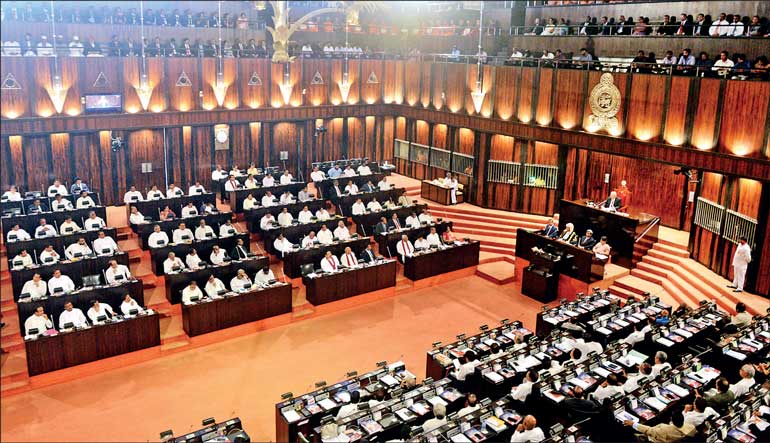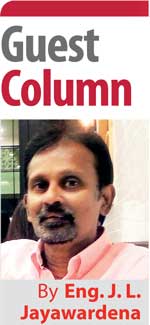Tuesday Feb 17, 2026
Tuesday Feb 17, 2026
Saturday, 23 March 2024 00:09 - - {{hitsCtrl.values.hits}}

People’s sovereignty has been stolen, taken away, and virtually installed in the hands of individual parties
 Preamble
Preamble
Chapter I of the Constitution specifies, the people, the state and sovereignty. It has several clauses and sub-clauses on how the three pillars: Executive, Legislator and Judiciary should function harmoniously and in compliance thus adhering to people’s sovereignty. However, the mandate given to both Executive and Legislator has been grossly violated undermining people’s power delegated to elected
members.
The recent two events, the online bill and the appointing of IGP, are good examples that led to controversies. The online bill was passed despite Supreme Court rulings and appointing the IGP by manipulation of vote counts of the Constitutional Council (CC) by the Speaker who is the chairman of CC, eligible for casting vote only in the event of equal “Yes” against “No”.
Does the Constitution match with electoral voting system
The people’s power is delegated through elected members of parliament to the three institutions, and to perform according to the constitutional framework thus ensuring fairness, justice and fulfil public aspirations at all times. In the past electoral setting, members were elected to represent his/her electorate and to carry forward the wishes and views of the constituents in the Parliament. With the new system enacted in 1978 by JRJ, the Government brought a proportional electoral system where the number of members was elected based on the votes casted for that party per district.
For example, if party A polls 70% and the member(s) of remaining parties 30%, even with high preferential vote count, candidates of 30% may not be elected and as opposed to lower preferential voter count of the 70% block and find the way to Parliament. The new district-wise election system builds power and only party stability (in the guise of Government stability) as opposed to individual members and flow through to party lines that prevailed pre 1978. This new system over the past four decades has shown concentration of power at unprecedented levels and governed by few selected hands. Hence a need arises to bring brand new constitution without tailoring the current constitution as and to bring back to pre-1978 with alignment to 21st century technology age.
Furthermore, the national list introduced in 1988 of electing 29 MPs, outside contesting have been enacted in contrary to the recommendation of the committee chaired by then prime minister R. Premadasa. The recommendation allows eminent personnel who are unwilling to contest be appointed with strict conditions viz: National lists of each party be provided at the day nominations, prevent people who contested and lost in the election be elected through national list and strangers other than the lists to be appointed. Recent media discussions highlighted that the original recommendations of the committee have been altered and removed and approved an amended version by the speaker at the time nullifying the aforementioned restrictions.
The anomalies and violations in place to-date paved the way for electing MPs based primarily on party basis and lose the individuality thus sticking together to the end of the term supporting whatever party brings with no concerns of people’s sovereignty. Therefore, the Constitution and current electoral system have a gross mismatch and are a convoluted and invalid piece of paper. Hence, people’s sovereignty has been stolen, taken away, and virtually installed in the hands of individual parties.
Interferences of Legislator and Executive
Despite having independent commissions such as Constitutional Council, Police commissions and other independent parliamentary select committees, COPX to be generalised, the key select committees are dominated by the Government party members and appointment of the chair for their preferences. The immediate past and present chair of COPE shows good examples of political interferences. There were incidences where the Judicial members were called to various committees to show the power of Executive and to the committees dominated by Government MPs.
The political appointees have no fear to exercise their thuggery towards elected members, an incident spearheaded recently in the Parliament was two army generals threatening the elected member and were subsequently called upon to privilege committee for apology. The interferences and state thuggery are occurring at every corner in the state machinery. The rogues have also been protected when brought up no confidence motions. Yet to see the results of no confidence motion filed against the Speaker of the Parliament collectively by opposition parties.
The Constitution
The English copy of the revised Constitution 2023, which I have downloaded extended over 300 pages containing several numbers of clauses and sub-clauses, as a comparison the Australian Constitution contains 43 pages. Clauses are looped and interlinked to make difficult for a lay person to easily refer and understand. Furthermore, the entrenched and immutable clauses and provisions need to be highlighted not only for Supreme Court to interpret but for every interested party to read and understand at their will.
Making the Constitution complex, complicated and convoluted becomes a paradise of law fraternity. I believe the Sinhalese version is more complex than the English version with so many unheard words and phrases. Does the complexity of the document make provisions for multiple interpretation and violations without fear and getting caught? The Constitution should be written to be easily read, understood and interpreted, to speedily detect in the case of violations by three pillars, Executive, Legislator, Judiciary, also public.
Conclusion
Upon electing the 1977 UNP government and subsequently bringing new Constitution without public consultation and enacted in a very short space of time changed the electoral landscape and electing members of party and proportional preferences basis deprived the people’s sovereignty. Electing members on national list against the recommendation of the parliamentary committee and those who have money bribing the vulnerable and marginalised have unrestricted path of getting elected on party preferences. We have seen such elected members be in the forefront of directing attacks verbally and physically e.g. in the Parliament.
This recent issue of depriving of a lawyer to practice indefinitely by the Supreme Court of SL on the account of challenging the election of national list members, despite strong evidence that contradicts to the parliamentary committee recommendation and process subsequently followed amending Article 62 (ref: 14 Amendment) was appalling and never heard elsewhere in any judicial settings. Is Judiciary being masked by political interferences and to what extent? – A reasonable question to ask.
This article clearly stipulates that unless enacted in accordance with the preceding clauses, no provision exits to interpret the said clause 82(6), as this amendment is flawed and enacted following an unethical process, hence challenging ever after 36 years is not unconstitutional. It appears that the Speaker of the Parliament in this instance purposely ignored his responsibility and supported the President JRJ. ref: Article 82(3)
82(6) Quote: No provision in any law shall, or shall be deemed to, amend, repeal or replace the Constitution or any provision thereof, or be so interpreted or construed, unless enacted in accordance with the requirements of the preceding provisions i.e. Article 82(1-5). Unquote.
Finally, all political parties to date, viz: UNP, JVP SLFP and SLPP had been appointed as National list members according to a piece of legislation of 14th Amendment which was in and contrary and inconsistence to the committee recommendation.
It is shameful that during swearing in of elected members, top-down of the hierarchy, repeat “ෙගෘරව භුමානයෙන්” affirming to uphold and defend the Constitution but carry out complete opposite duties to fulfil governing party political aspirations as opposed to the wishes of people, thus leading to destruction; examples, destroying the nature and environment, amassing wealth by illegitimate, illegal means, retaining power within family circles, etc.